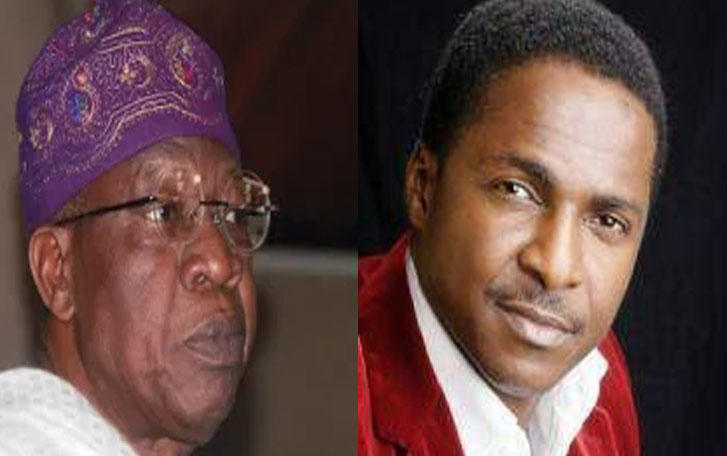By Kanene Obialuju
The story of Toyin Subair’s arrival in the national spotlight is inextricably linked to his defunct Hitv, the pay television experiment that went belly up within a few years. At launch, Hitv looked like a monster hit.
But those familiar with the story of the pay television provider and its promoter said it was everything but. The story is about how Hitv, seeking to make an instant splash in the pay television market with the popular English Premier League, dug its own grave.
According to the story, Chief Raymon Dokpesi of DAAR Communications was keen on the hit sports property for his pay television platform, DAARSat. That was in 2006. He, along with his team, made a bid but left the bidding session sure that some madness was afoot. Why? They had been blown out of the water by the Toyin Subair-led Hitv with a spectacularly outrageous bid.
DAARSat and its founder decided that they needed to call the attention of the National Broadcasting Commission (NBC), telling the broadcast regulator-in a petition-that Subair’s bid was unreasonable and the money could not be raised within Nigeria, something Subair appeared to confirm in a social media post four years ago, writing: “It pains me to admit that someone told the then Minister of Information that Nigerians can’t fund our type of business and I was really hoping to prove him wrong.”
Subair must have laughed. He got his wish with Hitv, which wrested the football property from the grip of MultiChoice, and plenty of media attention. After four years, with Hitv unable to renew the rights for what drew customers to it, it became ill, started gasping and died. The rights were, again, sold to MultiChoice, which was among the operators trumped by Hitv in the last round of bidding.
Those close to him said he blamed Multichoice, a claim that found confirmation in a 2017 post on his LinkedIn page.
“The competition spent a lot of time courting all arms of government and I was a simpleton. We just expected the whole world to cheer us on. The laws in Nigeria are as empty as they are full. A lot of writings but you have to make sure your business model is adequately protected…We paid $40 million for the first year of the second term of the EPL from mostly equity. But still had to come up with a guarantee of about $70 million for the latter two years and in Nigeria, guarantee requires cash in bank. The alternative bank we were forced to use, despite all their assurances and being offered half of the amount by another bank failed to issue same on that fateful Tuesday and only offered it to us on Thursday. Meanwhile the EPL sold it to our competition on Wednesday morning,” wrote Subair.
The animosity with MultiChoice, which he blames Hitv’s collapse on, has obviously continued to flame. Those who worked closely with him during the Hitv days blame the collapse on other things, which include unrestrained spending on first class trips abroad, ostensibly to seek new programming; and non-stop partying, which did not impress his board.
He claimed that those allegations were made up, saying Hitv had excellent corporate governance. This, however, is not supported by the evidence of how things went.
He, however, does not look like a man you can easily keep down. Once in a while, he had bobbed up in the past. These days, riding on the back of Lai Mohammed, Minister of Information and Culture, he has been remade as a big thing in the nation’s broadcast industry.
Industry watchers, many of who view the Information Minister with suspicion, are not comfortable with the dad-lad combo of Mohammed and Subair. They suspect both men of harbouring strong personal interests and working for the interest of a Tier-A Southwest politician, Asiwaju Bola Tinubu.
One of Subair’s jobs after Hitv sank was as Managing Director of CONSAT, the failed Tinubu-owned satellite television service provider, which Subair was said to assured the promoter that it would be the biggest thing on the circuit.
Soon after Hitv bombed, Subair founded InView, which he foresaw as a vehicle for Nigeria’s digital transition. The digital transition programme, it was suspected at onset, would deliver a feast for those with huge appetite for money, knowing the country’s corruption circle. Subair knew that government would insist on spending huge sums for the DSO even if cheaper alternatives were available. Having worked for Tinubu, to whom he tried to sell Hitv to in its dying days, he sought the godfather’s blessings. The godfather also saw a fusion of business and political benefits, especially the chance to become the local Rupert Murdoch
He already owns The Nation titles, Television Continental (TVC), Max FM and had always been a strong player in the media space since the time of the military when he was a shareholder in The News and Tempo magazines as well as PM News.
With his presidential ambition slowly gathering steam and with Mohammed and Subair to seize the broadcast media space, the hold on the media will be vice-like.
To make it easy, Mohamed has raised a Task Force to “ensure” Nigeria’s digital transition is completed before Buhari leaves office, a tough task, given that despite billions of naira spent, only the capitals of the six states used as pilot locations has digital transition infrastructure.
With additional billions released, only a few more states will be covered in the second stanza of the process. To manage expectations, the acting Director of the NBC, Armstrong Ideachaba announced that most of the recently approved N9.4billio the Federal Executive Council is for settling old debts.
One of the companies owed money to is Subair’s InView. Subair, I need to mention, is a member of the Ministerial
Task Force on the DSO? Conflict of interest? Be the judge.
















